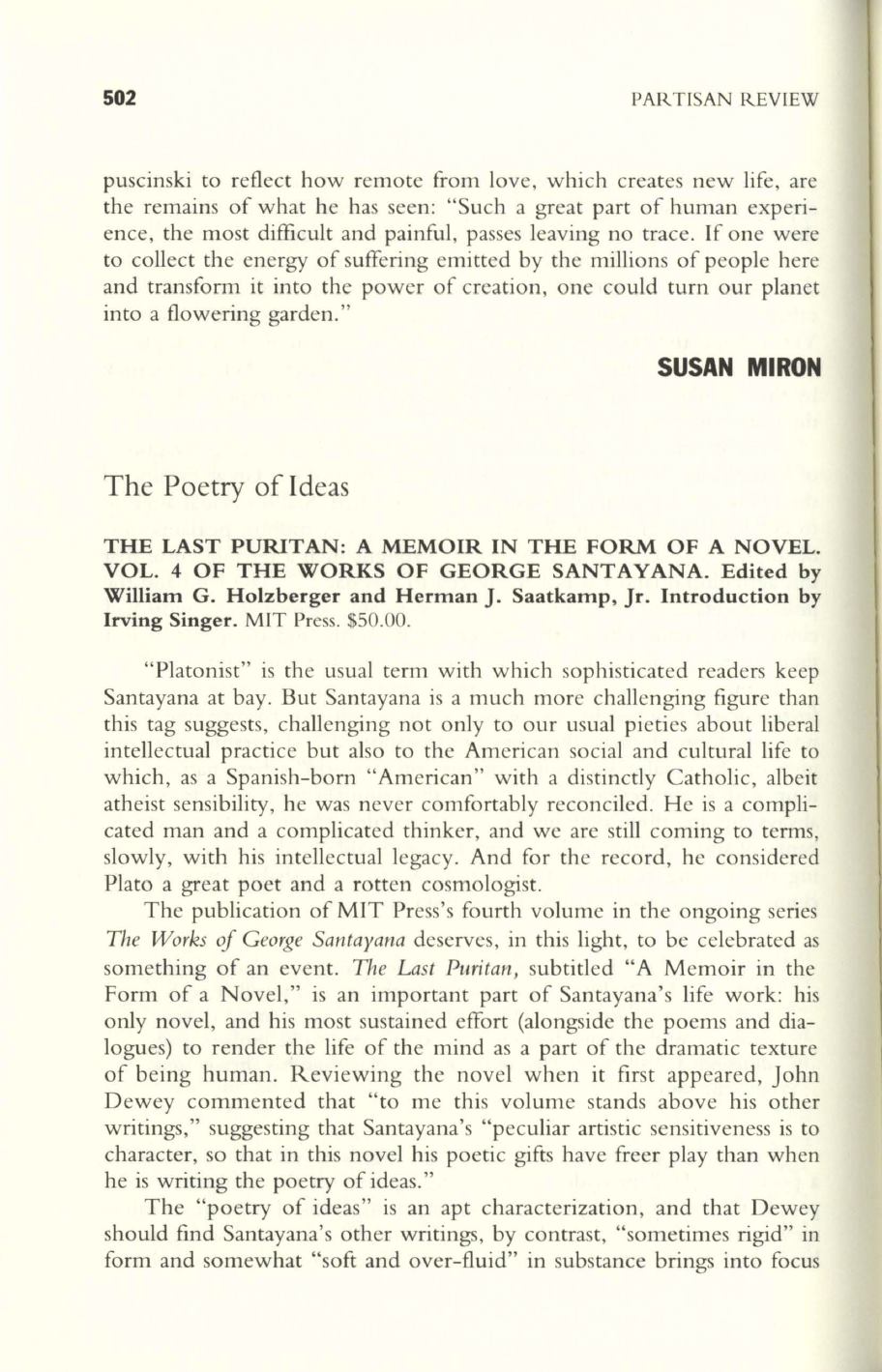
502
PARTISAN REVIEW
puscinski to reflect how remote from love, which creates new life, are
the remains of what he has seen: "Such a great part of human experi–
ence, the most difficult and painful, passes leaving no trace. If one were
to collect the energy of suffering emitted by the millions of people here
and transform it into the power of creation, one could turn our planet
into a flowering garden."
SUSAN MIRON
The Poetry of Ideas
THE LAST PURITAN: A MEMOIR IN THE FORM OF A NOVEL.
VOL. 4 OF THE WORKS OF GEORGE SANTAYANA. Edited by
William G. Holzberger and Herman J. Saatkamp, Jr. Introduction by
Irving Singer.
MIT Press.
$50.00.
"Platonist" is the usual term with which sophisticated readers keep
Santayana at bay. But Santayana is a much more challenging figure than
this tag suggests, challenging not only to our usual pieties about liberal
intellectual practice but also to the American social and cultural life to
which, as a Spanish-born "American" with a distinctly Catholic, albeit
atheist sensibility, he was never comfortably reconciled. He is a compli–
cated man and a complicated thinker, and we are still coming to terms,
slowly, with his intellectual legacy. And for the record, he considered
Plato a great poet and a rotten cosmologist.
The publication of MIT Press's fourth volume in the ongoing series
The Works of George Santayana
deserves, in this light, to be celebrated as
something of an event.
The Last Puritan,
subtitled "A Memoir in the
Form of a Novel," is an important part of Santayana's life work: his
only novel, and his most sustained effort (alongside the poems and dia–
logues) to render the life of the mind as a part of the dramatic texture
of being human. Reviewing the novel when it first appeared, John
Dewey commented that "to me this volume stands above his other
writings," suggesting that Santayana's "peculiar artistic sensitiveness is to
character, so that in this novel his poetic gifts have freer play than when
he is writing the poetry of ideas."
The "poetry of ideas" is an apt characterization, and that Dewey
should find Santayana's other writings, by contrast, "sometimes rigid" in
form and somewhat "soft and over-fluid" in substance brings into focus


